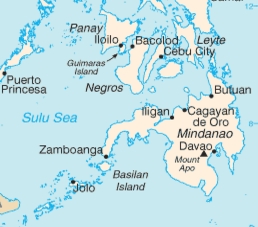On Jan. 17, 2007, Philippines military chief Gen. Hermogenes Esperon confirmed that Abu Sulaiman, a senior leader of the Abu Sayyaf Group (ASG), died the previous day during a fierce gun battle with government troops on Jolo Island. His death represents a major blow to one of the world's most notorious terror organizations. Abu Sayyaf ("Father of the Sword") is primarily an indigenous movement based in the Muslim-dominated regions of the southern Philippines. Its stated goal is to promote an independent Islamic state encompassing western Mindanao and the Sulu Archipelago, areas of the southern Philippines heavily populated by Moro Muslims, and perhaps southern Thailand and the island of Borneo. Abu Sayyaf has a long history of involvement in international terrorism. Many of its original leaders became radicalized while fighting for Islamist resistance groups in Afghanistan during the Soviet occupation. In the years following the Soviet military withdrawal from Afghanistan in 1988, several ASG members who had developed ties with al-Qaida transported its extremist aims and tactics to Southeast Asia.
Death of a Terrorist: Abu Sayyaf’s Abu Sulaiman

